Wooley: Too much love for a place can be bad thing
Let’s hope Tassie can keep its friendly vibe, unlike the negative attitude to tourists from citizens of Barcelona, writes Charles Wooley.
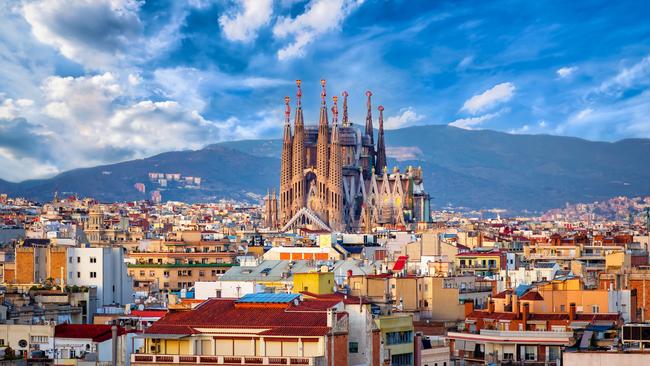
News
Don't miss out on the headlines from News. Followed categories will be added to My News.
Tourism back and meaner than ever.
My daughter Rosie is travelling in Europe where she has just visited Barcelona, a city I love. But Barcelona’s misfortune is that I’m not the only one; the Catalonian capital gets about 30 million visitors a year with a permanent population of only 1.6 million. It’s being loved to death in a phenomenon called “overtourism”. Too many people, most of whom might never have heard of George Orwell, are paying “Homage to Catalonia”.
Rosie told me last week, “We got in after midnight and saw a club with a ‘locals only’ sign on the door and a wall with graffiti saying ‘tourists go home. All within the first half hour’s wandering around, so I guess it’s definitely an issue for the locals.”
My memory of the place was that the signs and the graffiti were then a little ruder as in, “joder a los turistas”.
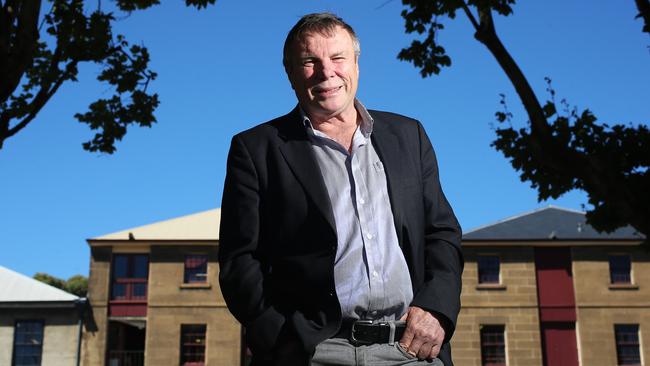
“What does that mean dear?” I once heard an English tourist ask her husband. He replied, “I suppose it means something like, welcome to Barcelona, have a nice day.”
Well not quite.
Let’s put it in a local perspective. Proportionately if Hobart had that percentage of visitation, we would have well over 4 million visitors which would vastly increase the problems we presently have managing just over I million.
The coliseum lobby would love it but again it might never happen. Unlike Barcelona we are an unaffordable distance from the great population centres where people are looking for a cheap holiday.
But if we do experience the coming of the masses, and you’re lucky enough to own a house you will make a tidy profit.
Cash in your chips and move to the south of Europe. But not to Barcelona. It would be too much like what you are trying to escape. The number of homeless people displaced by tourist accommodation is daunting and as a foreigner they will blame you.
“I’m definitely wary of being hated by the locals because that sentiment is so visually prevalent,” Rosie told me. She supplied a montage of ‘tourists go home’ signs including an old bloke yelling about tourists and holding a banner, pointedly in English, saying “Residents Lives Matter Too.”
Nothing much un-PC about that protest.
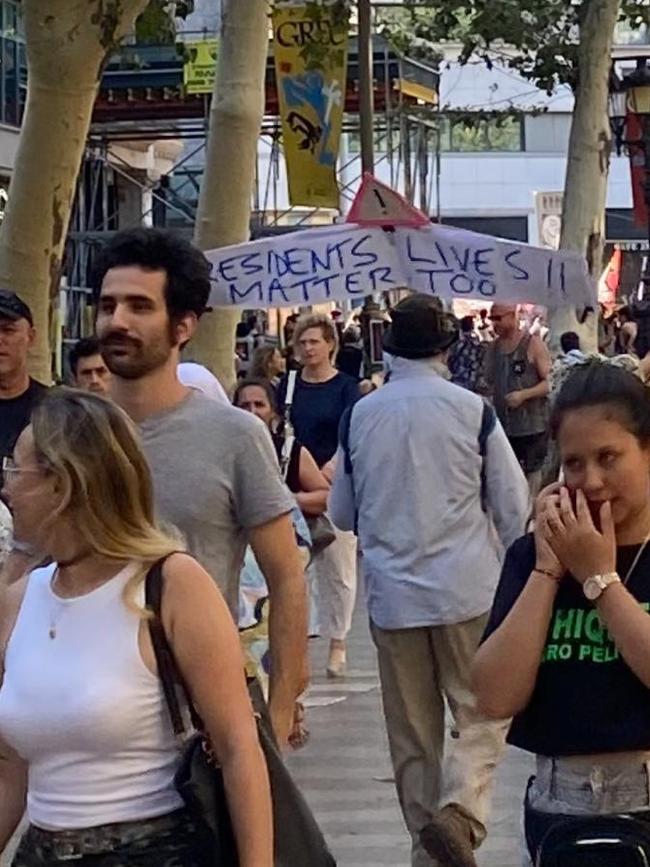
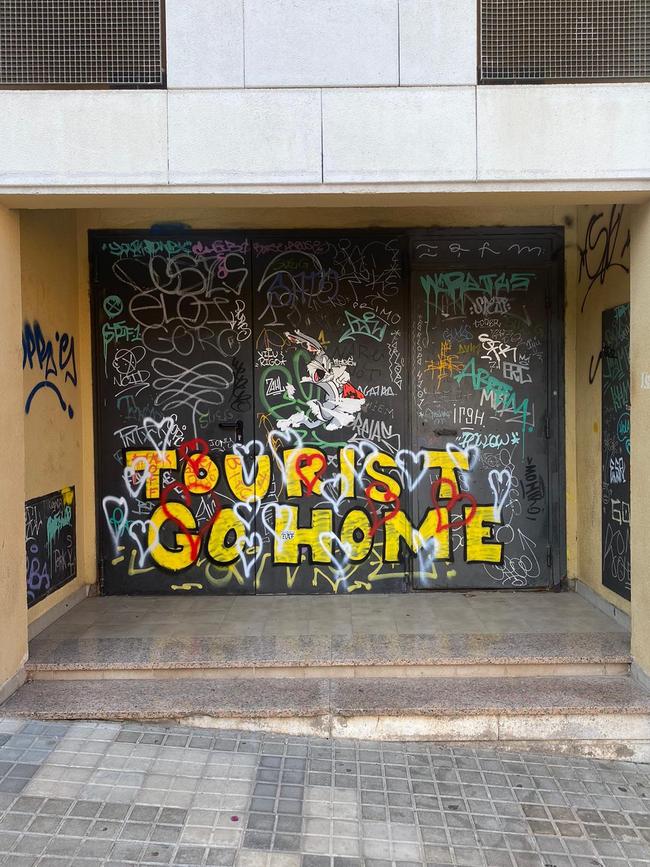
And the city authorities are thinking the same way about what they call “the locust plague of tourists”.
The deputy mayor Jaume Collboni has announced a tourist tax hike which will bring in $87m in the next year.
“The objective is to contain the number of tourists but increase tourist income because our model is no longer mass tourism but quality tourism, which adds value to the city.”
It’s not much fun being disliked (unless you write an opinion column) and Rosie reported how her fellow travellers were feeling about the lack of love in one of Europe’s most romantic cities.
“We were all talking about how it makes us feel guilty being here and not wanting to come back, even though it’s beautiful and there’s so much to see and the food is great.”
My experience of tourism around the world always leads me to explain that I am a traveller, a journalist and not a tourist.
Of course, I’m still part of the problem and I always remember a wise old Chinese proverb, “A traveller has no shame.”
Too many tourists are ignorant or blatantly indifferent to local sensitivities. Australians in Bali can be the worst. So much so, one time when an Indonesian copper in Denpasar rather coldly asked my film crew if we were from Australia, I put on my best Scottish accent, “Och no, Officer. We are from Scottish television.”
Suddenly he was so much friendlier. “Ok guys. Have a nice time in our country.”
On the other hand, never pretend to be from Scotland at any football final in Europe. You’ll get locked up.
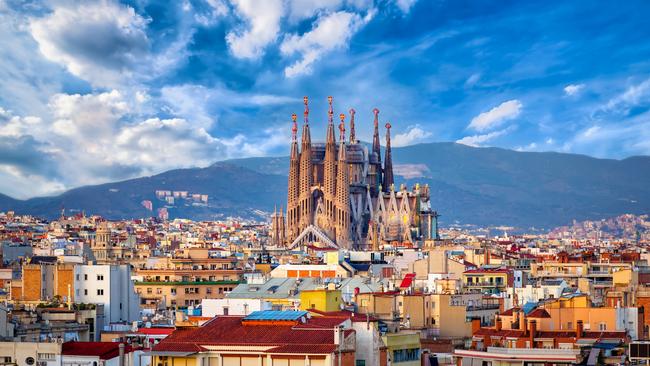
Tasmanians have a reputation for unqualified friendliness.
My mates who visit from the big smoke all comment on it. “People are so nice here. In the shops and in the street when they find you are not a local, they direct you to the best places. They really want you to love their state.”
Let’s hope we stay that way and don’t develop the vibe Rosie, who works in hospitality, felt in Barcelona.
“We all feel a bit unwelcome, but nobody has personally done or said anything that’s reinforced it. Some bar staff are a bit colder with us than with Spanish speaking customers.
We’ve had that a few times, but they’ve warmed to us, probably when they realise, we are not Americans,” she laughed.
“I think it’s a much larger socio-political issue that really needs to be managed by the government and I think most residents know that.
I suspect most people in tourism feel the same way about tourists as we do in Tassie – annoying but mostly harmless and unfortunately necessary for the economy.”
What a sensible and reasonable child.
Obviously, a chip off the old block, especially when she moved on to one of my other favourite cities, Madrid, where she reprised my first experience of the place.
“We walked into this really daggy-looking tapas place, staff with no English, and we ordered three small beers and thirty seconds later they throw down three plates of tapas all for 12 Euros. Also, vermu de grifo (vermouth on tap) with ice and a Sicilian olive.”
Really, it’s almost enough to make me want to be a bloody tourist.
Charles Wooley is a Tasmanian journalist and deputy mayor of Sorell.





